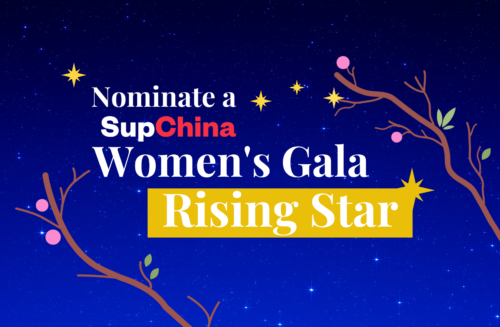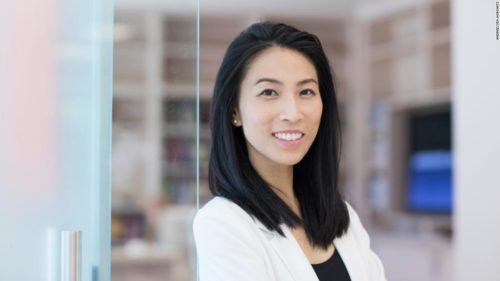Two nights of female empowerment and enlightenment: What happened at the 2022 The China Project Women’s Conference
Held on May 19 and 20, the 2022 edition of The China Project’s annual Women’s Conference was a combination of online and offline activities, attracting nearly 20 speakers and 500 attendees, and celebrating the achievements of women who are shaping the rising global power that is China.

The sixth The China Project Women’s Conference, an annual, premier event dedicated to inspiring participants with a series of speakers and fellowship, took place on May 19 and 20.
The two-day event convened a diverse group of thought leaders and visionaries empowering women in U.S.-China Industries with the theme “How women are shaping the rising power” and was the first to have an in-person component since 2020 because of COVID-19 interruptions the previous years.
The online conference on Day 1 drew in hundreds of attendees — both men and women — who learned trends and forecasts through a vibrant mix of panels and keynotes. The in-person gala on Day 2, held the next day at the Harmonie Club in New York City, witnessed participants making connections and celebrating the achievements of leading women honorees over cocktails and a multi-course dinner.
The Online Conference: May 19
https://www.youtube.com/watch?v=GpY23vykSp8
Following a warm welcome from Anla Cheng, CEO and Founder of The China Project, the night of the virtual conference began with keynote speaker Deborah Liu, CEO of Ancestry.com, sharing personal experiences from twenty years as a woman leader in the male-dominated tech industry. Liu shared her immigrant family experience, encouraged female listeners to take back their power and offered advice on how they could turn challenges into opportunities in the workplace.

The fireside chat, moderated by the Economist Intelligence Corporate Network’s Mattie Bekink, saw Yale law professor Amy Chua, known for her book Battle Hymn of the Tiger Mother, and New York-based Corporate Partner Catherine Pan, discussing the current state of U.S.-China relations and the rise of anti-Asian sentiment in the U.S.
When asked about the impact of the COVID-19 pandemic on her work, Pan said that up until Shanghai’s recent lockdowns, she believed that “China was making a positive turn on its economic policies.” But the outbreak in Shanghai caused a devastating loss of “business confidence and opportunities on the ground,” making business people in China concerned about “winter is coming,” Pan added.

Concluding the segment, Chua said that although she’s weathered her fair share of controversies throughout her career, she believes in the power of “always rejecting bitterness” while “being generous.”
The first panel of the evening, on the challenges affecting the tech scene between the U.S. and China, brought together Sara Yang Bosco, senior vice president of Emerson; Dr. Stella Xu, managing director of Quan Capital; Angie Li, consulting partner of Deloitte; and moderator Rui Ma, a veteran Chinese tech analyst and founder of Tech Buzz China.

Having spent years consulting clients in China before being seconded to the U.S., Li pointed out that over the past decade, Chinese tech companies have drastically transformed their business models from copying market-proven products from the West to creating services tailored to local needs. Li went on to say that with the advent of new-generation technologies like 5G technology and artificial intelligence, many of the high-tech companies she works with are pivoting from hardware-centric firms to solutions-oriented enterprises.
“That comes with a whole host of challenges, going from customer service down to supply chain spare parts,” Li stated, adding that a human resources transformation was particularly pressing for companies seeking global expansion in the post-pandemic world.
The second panel, moderated by Jenny Liu, Partner at Pillsbury Winthrop Shaw Pittman LLP and themed around consumer sustainability, featured Gabby Hirata, the president and chief executive officer of Diane von Furstenberg (DVF); Amantia Muhedini, a Sustainable Investing Strategist at UBS; and Lizzi Lee, am economist-turned-China-analyst and presenter at the Wall Street TV.

Liu told the conference that she thought one of the silver linings that came out of COVID was a shift in consumers’ attitude towards the environment. “Most companies and most major companies acknowledged climate change and environmental degradation as real. And they are pledging to do more,” Liu said. “As a law firm, we see our company clients increasingly engaged to talk to investors, management, directors, and regulators about issues related to sustainability.”
Liu then posed a question to the panelists: “What would it take for companies in your industry to improve sustainability?” Hirata, who has been leading the sustainability efforts at DVF, said that “the only thing that would move the needle in the fashion industry is customers demanding sustainable products.”
At UBS, Muhedini said there are lots of things and ways it considers in evaluating whether a company is operationally sustainable. “We are not necessarily looking at what the company is making or what is deriving revenue from.” she said. “Instead, what is its global footprint in the world? How is it prepared to manage climate risk? How is it going to impact its own business operations? Or, on the other side, how is it considering what carbon emissions are? How is it managing its supply chains? How is it looking at its workforce, from retention to recruiting to workplace management policies?”
Muhedini added, “We are also looking at things like health and safety, as well as emerging areas like data privacy and security.” In China in particular, Muhedini said that data transparency continues to lag compared to other markets, but there has been a trend of improvement. She continued, “There are mandatory environmental disclosures for listed companies. And in our chief investment office, our analysts need to overlay a qualitative view to understand and fill in those data gaps, meaning they are meeting with executives to understand what their challenges are and contextualizing with knowledge of market dynamics, regulations, and consumer trends.”

A common theme discussed throughout the discussions on the first day of the conference was possibilities and necessities of collaboration, said Anna Ashton, the emcee of the conference, who works at the Asia Society Policy Institute as a senior fellow for Asia Pacific Trade. Anla Cheng echoed Ashton’s sentiment in her closing remarks, saying that she was inspired by all the tips shared by the speakers that would enable participants to advance in their personal lives and careers, as well as make a positive impact in the U.S.-China space.
The atmosphere of empowerment and enlightenment carried through to the in-person gala and awards on Friday as well. Read more here.





